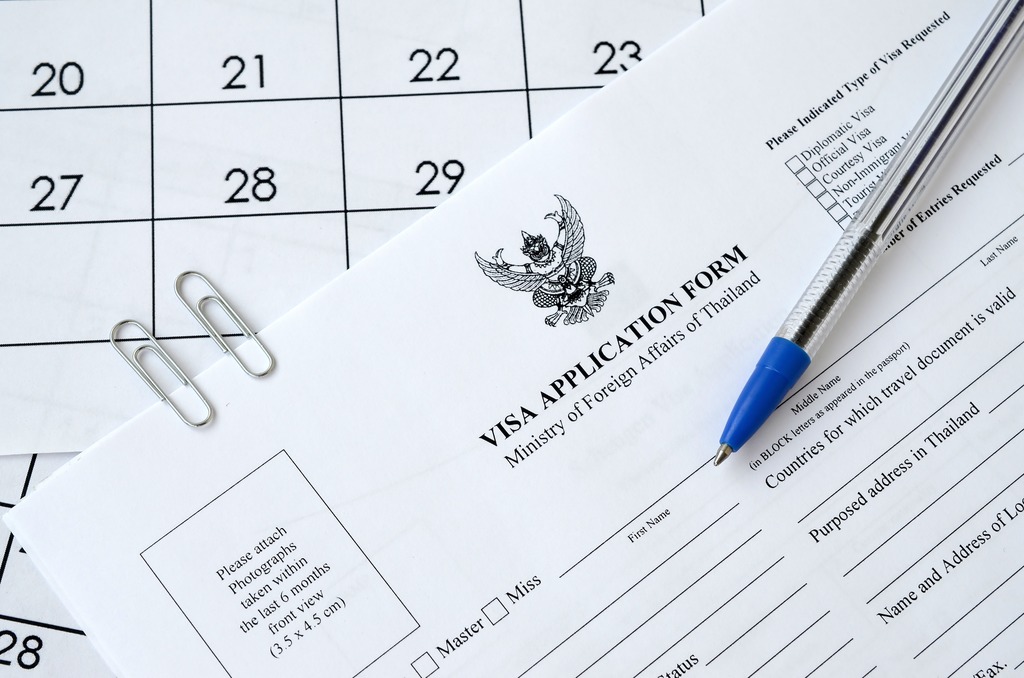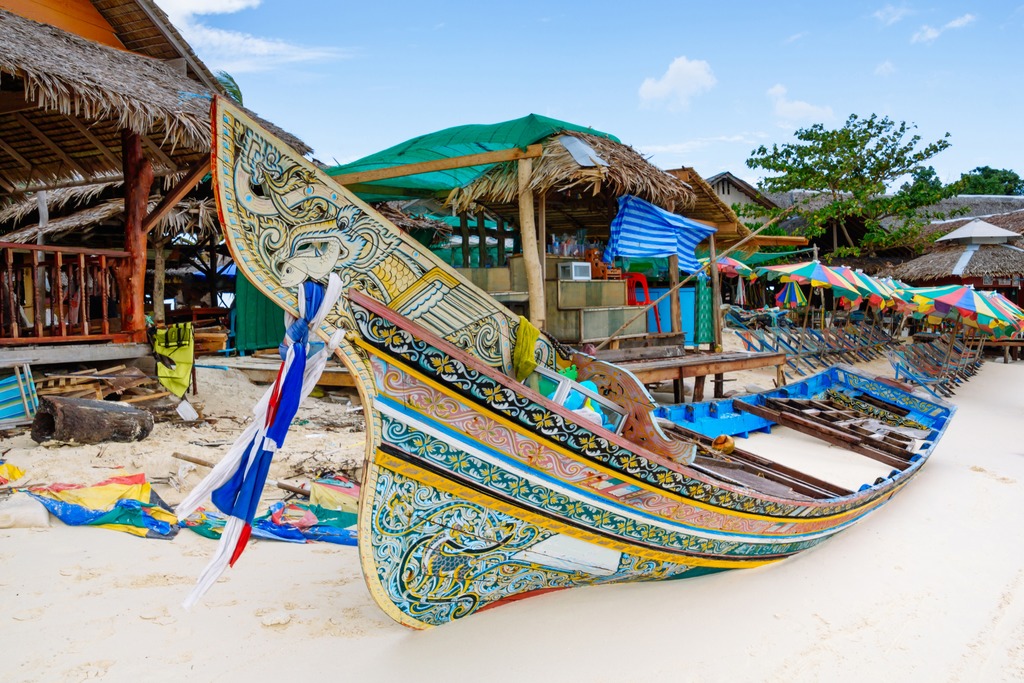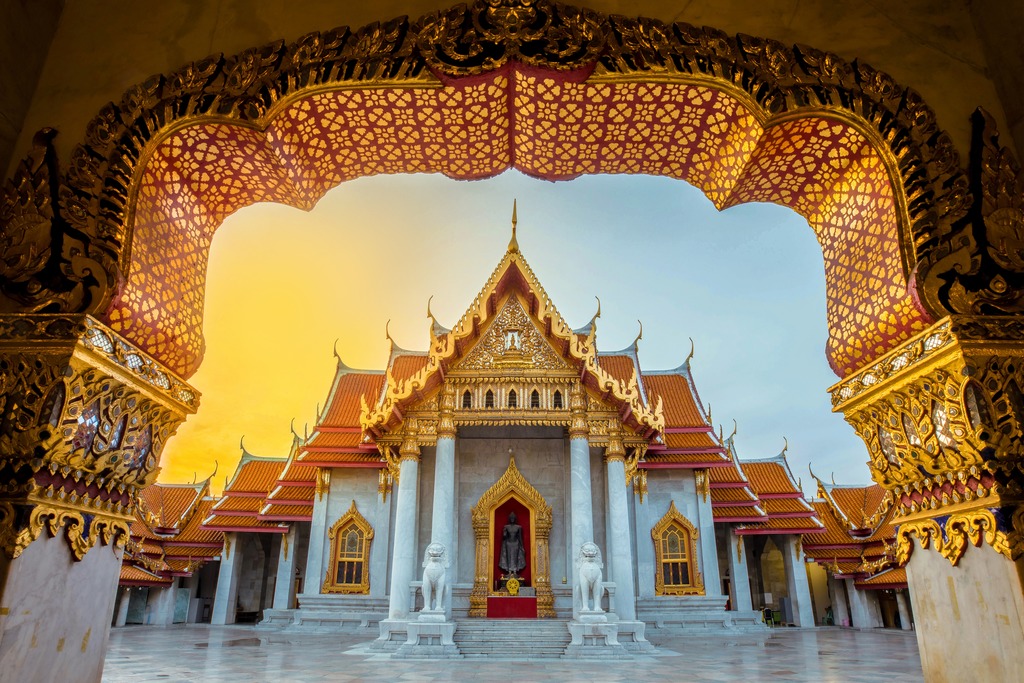
Tourist Visas
There are different types of tourist visas in Thailand. The type of tourist visa that you will apply for will depend on the length of your stay, where you are visiting from, and the reason for your visit.
Documents required for a tourist visa include:
Passport or travel document with a validity of at least 6 months
Visa application form (filled out)
One(1) recent 4x6cm. photograph of the applicant
Round-trip air ticket or e-ticket (paid in full)
Proof of financial means (20,000 baht per person/40,000 baht per family)
Proof of Hotel or private accommodation
Keep in mind that consular officers reserve the right to request additional documents when they find them necessary.
The Tourist Visas are usually 60-day visas which can either be a multiple or single entry visa and can be extended by another 30 days. However, according to Immigration Bureau policies, citizens of Sri Lanka, Bangladesh, India, Pakistan, Iran, Nigeria, Togo, and Uganda are granted extensions of 7 days only.
You will need proof of onward travel, six months of validity on your passport, and proof of funds for the duration of your stay to get a tourist visa.
There are different types of tourist visas and the type of visa you need to apply for will depend on where you’re visiting from and the reason for your visit.
Types of Tourist Visas:
Special Tourist Visa (STV)
The Thailand Special Tourist Visa (STV) was introduced in late 2020 and targets travelers who are interested in staying in Thailand for a long period of time and wish to spend between 90 to 270 days in the country. The issuance of a Thailand Special Tourist Visa will cost 2,000 THB (about 64 USD). This type of visa cannot be changed or converted into any other type of visa during your stay in Thailand.
Thailand Special Tourist Visa Qualifications
Foreigners applying for a Special Tourist Visa must:
Be from a low-risk COVID-19 country (according to the Public Health Ministry regulations)
Accept compliance with preventive measures as prescribed by the government, including submitting to alternative state quarantine (ASQ) in accredited hospitals/hotels within 14 days upon arrival.
Show proof of payment for hotel accommodation or admittance to hospitals chosen as alternative state quarantine (ASQ) facilities.
Provide proof of accommodation after the 14-day quarantine and for the duration of the long term stay, such as:
Proof of payment for hotel or accommodation to be used after discharge from quarantine.
Copy of a condominium title deed owned by the visitor or a family member.
Evidence of renting accommodation – condominium or house.
Evidence of payment for the purchase or lease of a condominium-type residence that foreigners can legally buy or lease.
Provide proof of medical and travel insurance policy (adequate travel medical insurance with at least $100,000 USD coverage for COVID-19 care, as well as 400,000 THB for other accidents, injuries or illnesses)
Provide a Fit to Fly Certificate which proves that you have recently had a negative COVID-19 test.
You may be asked to provide a police-approved criminal records background check that has been done in the last three months.
Please note:
You need to have the correct format for Health Insurance, otherwise, your COE application might get rejected.
The requirements for the Thailand Special Tourist Visa are changing all the time and it’s best to check the recent updates before applying for one.
You can apply for the STV if you meet the requirements above. You apply through the Thai Embassy or Consulate or local office of the Tourism Authority of Thailand in your country or an accredited travel agency. Each Thai Embassy usually has its own specific requirements, so make sure to check with them first if you are eligible for the STV before you book any hotels or flights.
Single Entry Tourist Visa (SETV)
Single Entry Tourist Visas must be applied for before arriving in Thailand. The single-entry tourist visa is valid for 60 days from when you enter Thailand and may be extended for an extra 30 days at a Thai immigration office while you’re in the country. If you step outside of Thailand at any point before your 60 days are over while you are on this visa, the visa will get immediately canceled even if you have days remaining on your quota. A SETV can only be applied from your home country, so if you do visit a neighboring country during your trip and then return to Thailand, you will need to get a Visa Exemption or a Visa On Arrival depending on where you’re from.
Please note: The SETV is valid for entering Thailand once within 3 months from the date of application, which means you have to use this visa within 90 days from its date of issuance. You can obtain the visa from the Royal Thai Embassy or Consulate in your home country.
Multiple Entry Tourist Visa (METV)
The Multiple Entry Tourist Visa allows you to enter and leave Thailand multiple times, whether it’s by air or land. You must apply for this visa at Thai consulates and embassies within your home country. It stays valid for 6 months and you can enter and leave during that period as many times as you want, but you can only stay 60 days at once. The visa fee is around $175 and takes about two days to process.
Visa Exemption / Visa Waiver Entry
If you’re from one of the countries that qualify for a visa exemption, you will be able to fly into Thailand without a visa. You will need your passport to enter, which will be stamped upon arrival and will allow you to stay in Thailand for up to 30 days.
However, this visa is not ideal for people planning to stay long-term in Thailand because it only lets you stay up to 30 days in the country. Some travelers manage to get around this time limit by doing a border run. A border run is when you leave the country and come back a few days later to "restart the clock" on your visa because it would have expired otherwise. Laos, Cambodia and Malaysia are the most common border run countries from Thailand. It is important to keep in mind that you are only allowed to do border runs twice a year, and you cannot stay longer than 3 months without a visa.
Some Visa Exemption Countries:
United States, United Kingdom, Canada, Argentina, Australia, Austria, Bahrain, Belgium, Brazil, Brunei, Chile, Czech Republic, Denmark, Estonia, Finland, France, Germany, Greece, Hong Kong, Hungary, Iceland, Indonesia, Ireland, Israel, Italy, Japan, Korea, Kuwait, Laos, Liechtenstein, Luxembourg, Macau, Malaysia, Monaco, Mongolia, Netherlands, New Zealand, Norway, Oman, Peru, Philippines, Poland, Portugal, Qatar, Russia, Singapore, Slovak Republic, Slovenia, South Africa, Spain, Sweden, Switzerland, Turkey, United Arab Emirates, and Vietnam
Visa on Arrival
If you’re from one of the countries that qualify for a Visa on arrival and arriving by air, you are eligible for Visa on arrival, where your passport will be stamped and you will receive your visa in your passport.
If you don't fall under the visa-exempt countries, such as Andorra, Bulgaria, Bhutan, China, Cyprus, Ethiopia, India, Kazakhstan, Latvia, Lithuania, Maldives, Malta, Mauritius, Romania, San Marino, Saudi Arabia, Taiwan, Ukraine, or Uzbekistan, you can apply for a Visa On Arrival. This visa only lasts for 15 days and costs 2,000 THB (or about $66 USD) and can only be extended for 2-7 days.
The other option is to apply for an E-visa online within 30 days of entering Thailand. You’ll need to fill out the forms, scan the required documentation, and then make the payment online.
However, E-Visas can only be used if you’re arriving by air at Bangkok Suvarnabhumi Airport (BKK), Bangkok Don Mueang Airport (DMK), Phuket International Airport (HKT), Chiang Mai International Airport (CNX), or Krabi International Airport (KBV).
Thai Education Visa
The Thai education visa is issued to applicants wishing to enter Thailand for education purposes, such as to study or do an internship program or a training course. This visa allows you to stay from 90 days up to one year, depending on whether you get a single-entry education visa or multiple-entry education visa. With a single entry visa, you can stay for up to 90 days, whereas a multiple entry visa lets you stay for a year. Both single-entry and multiple-entry visas are valid for three months, with chances of multiple-entry visas being valid for a year.
To apply for a Non-Immigrant ED Visa you apply at a Thai embassy or consulate outside of Thailand. If you are from Bangladesh, China, India, Iran, Sri Lanka, or any Middle Eastern country, you will be required to apply for an ED Visa at a Thai Embassy or Consulate in your home/residential country or at a designated Thai Embassy.
Before you apply, you will need to be accepted on a full-time educational course, training program, or internship in Thailand which is recognized by the Thai Government and the course must require students to attend classes for at least 100 hours for every 90-days, which amounts to around 8-10 hours per week. You will need some necessary paperwork in order to submit your application which should be provided by your educational institute once you have enrolled.
Documents required:
You will need to provide the following documents when making your Non-Immigrant ED Visa application:
A passport or travel document with at least 6-month validity from the planned date of arrival in Thailand.
A completed visa application form.
2 passport-sized photos (4 x 6 cm) taken within the last 6 months.
A completed TM 87 Thai Visa Application form.
Documents your institute will need to provide you with (or supply directly to the embassy or consulate at which you are applying):
A letter of acceptance to the school or academic institute/organization.
Evidence of enrollment (receipts of tuition fee payments).
Course description.
School registration documents.
If you need more tips on traveling in Thailand, you can check out our guides on Best Places to Live in Thailand for Digital Nomads, Things That You Need To See & Do In Phuket and A Traveler's Guide To Must-Try Traditional, Halal, Kosher & Vegan Food in Thailand. Also, if you need a travel buddy in Thailand, or need tips and advice from friendly locals in Thailand, you can connect with them on GAFFL!



